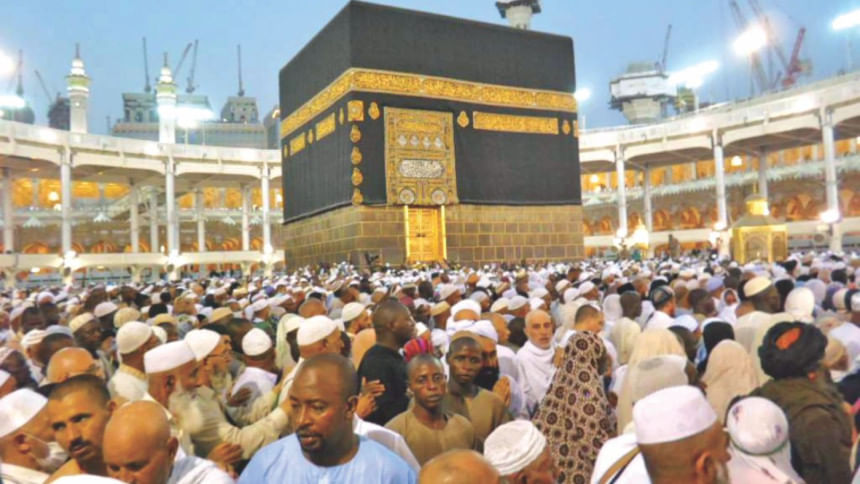The first time I saw Kaaba

Photos: Anisur Rahman
And We made the House a focal point for the people, and a sanctuary. Use the shrine of Abraham as a place of prayer. And We commissioned Abraham and Ishmael, "Sanctify My House for those who circle around it, and those who seclude themselves in it, and those who kneel and prostrate."
– Surah Al-Baqarah, The Holy Quran.
Performing Hajj is a lifelong dream. And Arshad Ahmed has been one of those fortunate enough to live it. However, the circumstances under which he performed the pilgrimage were distressing, for he was in a bad shape, emotionally and physically.
Let's not venture into reasons that caused him to be in that state: it's now irrelevant, and there is no point in dwelling about past miseries. He was, to put it simply, trapped under the fangs of depression.
“My mother thought the pilgrimage might help me,” Ahmed looks back. “But my expectations were low.”
Nevertheless, being interested in religion, he agreed to embark upon this great journey. And great the feeling was when he laid his eyes on Kaaba.

We hear people talk about it; we read about it; we watch it on Television. But when we stand in front of this gigantic black cube ourselves, it just overwhelms us. “Seeing the Kaaba I felt that a veil between my world and Allah has been raised. Whatever I will say, he will listen,” Ahmed tried to explain the feeling. “All my life, I've chanted Allahu Akbar without really knowing what it meant. But the day I saw Kaaba, I felt 'Allah is the greatest' in my bones.”
The House has an overpowering effect. The enormous height perhaps produces a humbling sentiment whilst its long history makes it a testament of times. Millions of Muslims from all over the world come to see it every year.
“Oh Mountains of Makkah, what can you say
Of the day that Abraham passed your way
And he was instructed by God to build
A House of peace where people will pray
And they will come on every lean
Camel and out of every ravine
For the purpose of praising Allah
To glorify Allah.”
Zinia Binte Hasib, now aged 24, visited Mecca when she was about 11. When she first saw Kaaba, she too experienced the immense feeling. Tears ran down her cheeks. “I wasn't sad. They were not tears of joy either. I was just overwhelmed. I didn't know why I was crying, but I felt like I should. I asked my mother about it, and she assured me that it's all right to cry,” she remembers.
She believes that after the pilgrimage, Muslims return with a renewed sense of hope.
For Ahmed, the last 'tawaf' (ritual of circling around Kaaba) is the most heart-touching. “It is the relationship you have built with the Kaaba over the weeks,” he opines. “People weep like they have never wept before.”
“Oh Mountains of Makkah how will it feel
When the earth shall quake and tremble with fear?
And we shall be gathered together to stand
In the court of Allah with our deeds at hand
Oh how we pray that on that day
We'll be with those to whom Allah will say:
Peace be with you, I am pleased with you.”
Excerpts from 'Mountains of Makkah', a song by Zain Bhikha, have been quoted.

 For all latest news, follow The Daily Star's Google News channel.
For all latest news, follow The Daily Star's Google News channel. 



Comments